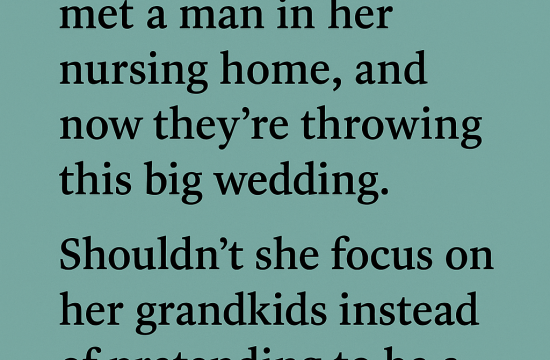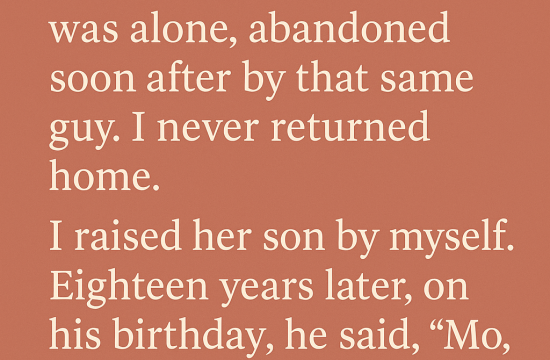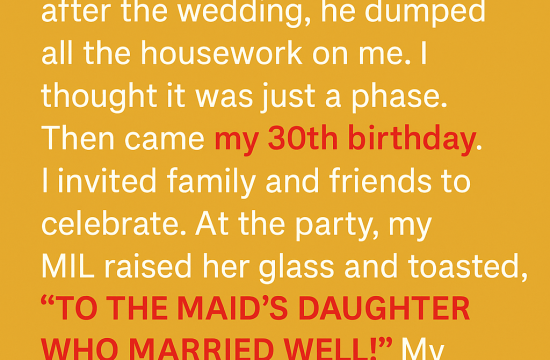My husband is the only breadwinner in our family, while I’m a stay-at-home mom caring for our three kids. Five months ago, he started complaining that he “just didn’t feel right.” At first, I thought it was the flu or maybe stress from his job as a construction project manager—he’d been working brutal hours in an understaffed company.
But after a month of vague complaints—headaches, stomach cramps, back pain—I insisted on a medical checkup. He came home saying the doctor found nothing wrong, yet he was adamant something was “off” and refused to talk about it. That was my first red flag.
Then the other changes came. Late nights. Missed dinners. “Working through lunch” but not touching his plate when he got home. He’d sit at the table, distracted, pushing food around. One night, I found him in the driveway, sitting in his car, staring at his phone like the rest of the world didn’t exist. When I knocked on the window, he jumped like I’d caught him doing something forbidden.
The truth began to unravel with a single text notification. His phone lit up on the nightstand: “Can’t stop thinking about you today.” My stomach dropped. It wasn’t from me.
For three days, I pretended nothing had happened while silently watching him, piecing things together. Finally, I asked him point-blank: “Who’s M?”
He froze. Then, after some fumbling excuses, he admitted she was a coworker. “We just talk sometimes,” he said. But when I told him I’d seen the messages, the dam broke. He confessed they’d been texting for months, meeting for lunch a few times, and that one afternoon, she’d kissed him in a parking lot. He swore that was all. “I don’t even know why I did it. I was lost,” he muttered.
I was livid—and yet, strangely, relieved to finally know why he’d been so different. I told him we needed space. He moved into the guest room, and for two weeks we barely spoke except about the kids.
Then came the second blow—this time, not from him. A woman named Yara, one of his coworkers, called me. She said she didn’t want to interfere but thought I deserved the “whole story.” M, she told me, had a history. She’d been fired from her last job for stirring up trouble between married coworkers. At my husband’s company, she bragged about “having him wrapped around her finger.” She’d shown up at sites she wasn’t assigned to, left notes in his truck, even appeared at his gym uninvited.
When I confronted him with this, he didn’t deny it. In fact, he seemed almost relieved. He admitted he’d been avoiding coming straight home because he didn’t want her following him here. The “can’t stop thinking about you” text? He said he’d already stopped responding when she sent it.
I still wasn’t ready to forgive him—he’d crossed lines that should never be crossed—but I could see he was caught in something messy and manipulative. We agreed to try marriage counseling. Those first sessions were brutal—me unloading months of betrayal and him sitting there, jaw tight, like every word hurt to hear.
Slowly, though, things began to shift. He gave me full access to his phone. Blocked her everywhere. Requested a transfer to another division. And then, two months later, the final twist—M’s husband called me. He’d discovered she was messaging not only my husband, but several other men. He apologized for her behavior and told me he was leaving her. Apparently, this was her pattern—emotional affairs for attention.
That night, I looked at my husband across the table. He wasn’t the flawless man I’d married, but he was standing here, willing to own his part in this mess and do the work to fix it. I realized I still loved him. And I wanted our kids to see us choose to fight for each other, not just walk away.
Five months on, our marriage isn’t perfect—but it’s stronger. Not because of what happened, but because we faced it together. We share morning coffee again before the kids wake up. We talk more. And I’ve learned that forgiveness doesn’t mean forgetting—it means deciding that the future matters more than the past.
If you’re facing something similar, here’s my advice: demand the truth, even if you’re afraid of the answer. If you choose to stay, stay with your eyes open. Love is not a feeling—it’s a choice you make every day, even on the days you least feel like it.











